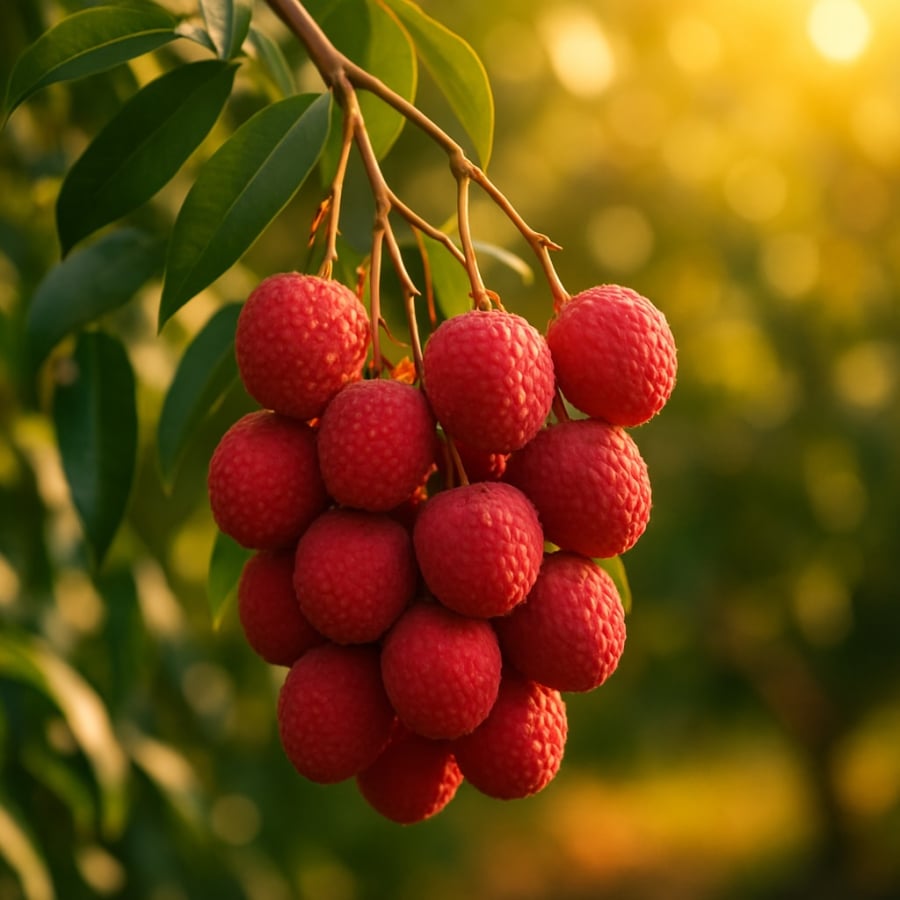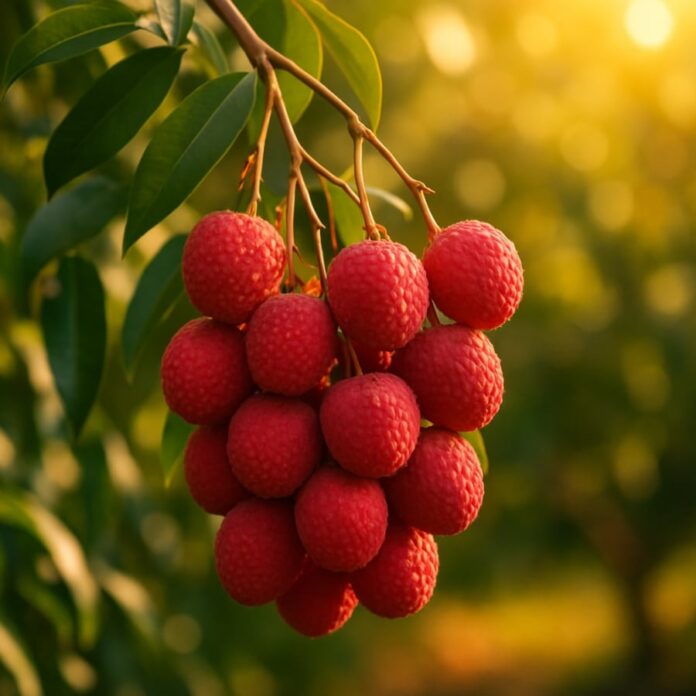Luscious Lychees: Nature’s Nutritious Delights
I used to think of lychees as just delicious fruit, but upon discovering their amazing benefits, I’ve come to cherish this summer treat even more. In traditional Chinese medicine, lychees are considered a precious remedy. The seeds (litchi nuts) treat testicular and menstrual pain, while the flesh (litchi pulp) tonifies the spleen, benefits qi, nourishes blood, and calms the mind, promoting overall health, better sleep, and a sense of relaxation. Even the lychee’s peel (litchi husk) has its purpose, known for its cooling and detoxifying properties, effective against diarrhea.
Modern science also attests to the value of lychees. They are rich in vitamin C (approximately 72mg/100g), boosting immunity and enhancing skin health. Lychees also contain powerful antioxidants such as polyphenols, flavonoids, and anthocyanins, which protect cells and reduce inflammation. Additionally, they are a good source of copper, potassium, and iron, benefiting cardiovascular and nervous system health.

Why Do Lychees Cause “Internal Heat”?
Many people worry about the “internal heat” caused by lychees, characterized by symptoms like dry mouth, thirst, acne, and constipation. But why does this happen?
According to traditional Chinese medicine, lychees have a warming nature, and consuming too many can generate heat, deplete body fluids, and disrupt the body’s balance. Modern science offers a similar explanation, pointing to the high natural sugar content in lychees. Eating large quantities can lead to a rapid increase in blood sugar levels, heightened metabolism, and heat production, resulting in a “flushed” feeling and increased thirst.
As Lychee expert and former Chairman of Ba Dinh District’s Oriental Medicine Association, Mr. Bui Hong Minh, explained to VnExpress: “Consuming more than 500g of lychees can cause an influx of glucose into the blood, surpassing the liver’s absorption and metabolism capabilities, leading to reduced blood sugar levels. This can result in symptoms such as dizziness, headaches, nausea, rapid heartbeat, and sweating.”
Secrets to Enjoying Lychees Without the Heat
Understanding the cause of the “internal heat” led me to discover some clever tricks to enjoy lychees to my heart’s content without worrying about their side effects. Give these a try:
Grandma’s Tip: Soak in Brine
My grandmother used to soak lychees in a mild brine solution. In traditional Chinese medicine, salt is believed to reduce fire and counteract the warming nature of lychees. Simply peel the lychees, and soak the flesh and peel in a mild salt water solution for about an hour. It’s a simple yet effective trick.
Chill for a Cool Treat
After soaking in brine, I like to chill the lychees in the refrigerator or with ice. Chilled lychees are not only crisp and sweet but also less warming, providing a refreshing sensation on a hot summer day.
Pair with Cooling Foods: A Yin-Yang Balance
Following the Yin-Yang principle of traditional Chinese medicine, I often pair lychees with cooling foods like mung bean soup, chrysanthemum tea, or watermelon. This helps maintain a balanced body temperature, reduces the “flushed” feeling, and makes the meal even more delightful.

Lychee Peel Infusion: Nature’s Neutralizer
The lychee peel (litchi husk) serves as a natural “neutralizer” to the warming flesh. With a bitter taste and cooling property, it can be consumed along with the white membrane surrounding the aril or used to make a post-meal drink. This is an effective way to counteract the heat.
Moderation is Key: The Most Important Principle
The most important principle is moderation. Overeating lychees can lead to heat and acne breakouts. Experts recommend that an average person should consume no more than 5-10 lychees per serving and not exceed 10 lychees per day. Pregnant women and children should eat even less (3-4 lychees per serving). If you have a warm body constitution, it’s best to limit your intake. Avoid eating lychees on an empty stomach, and always stay hydrated after indulging in these delicious fruits to reduce the risk of heat generation.
Lychees are a precious gift of summer. Don’t let the fear of “internal heat” stop you from enjoying this delightful fruit. With a little knowledge and mindfulness in your consumption, you can fully savor the sweet, refreshing taste of lychees without any worries. Try out these tips and experience the difference for yourself. Wishing you a cool summer filled with energy and delight!
The Four Coffee-Consuming Windows: A Guide to Optimizing Your Caffeine Fix
The Best Times to Drink Coffee for Your Heart’s Health – a Brew-tiful Guide!
An invigorating cup of coffee is a beloved ritual for many, but did you know that timing your coffee intake can have a positive impact on your heart health? Discover the optimal times to enjoy your brew and give your cardiovascular system a boost!
The Super Nutritious Part of the Pig: A Hidden Treasure
Introducing the ultimate superfood, a unique delicacy derived from pork. This special part of the pig is believed to possess potent properties, especially when paired with beer. Together, they create a dynamic duo, a “tonic” of sorts, that is highly revered by gentlemen for its perceived invigorating qualities.








































